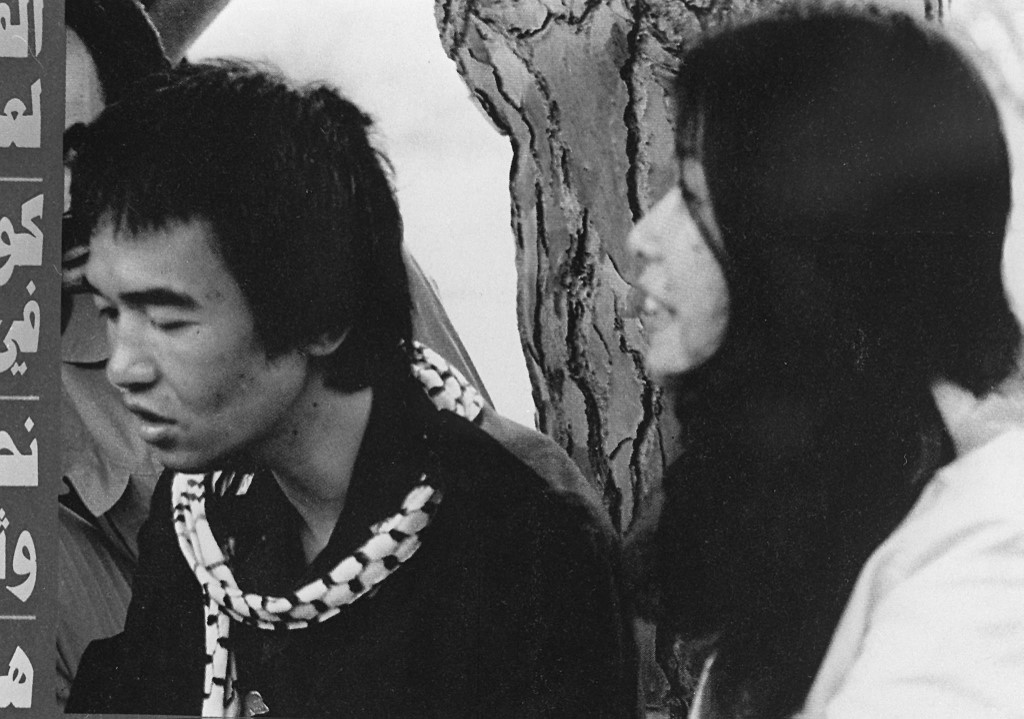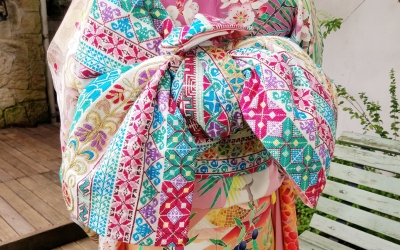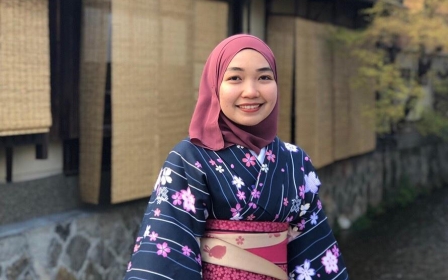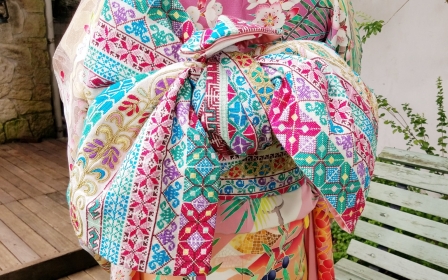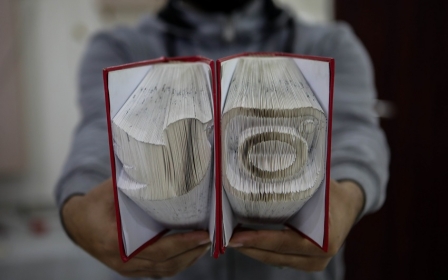Japanese Red Army co-founder and Palestine supporter Shigenobu freed from prison
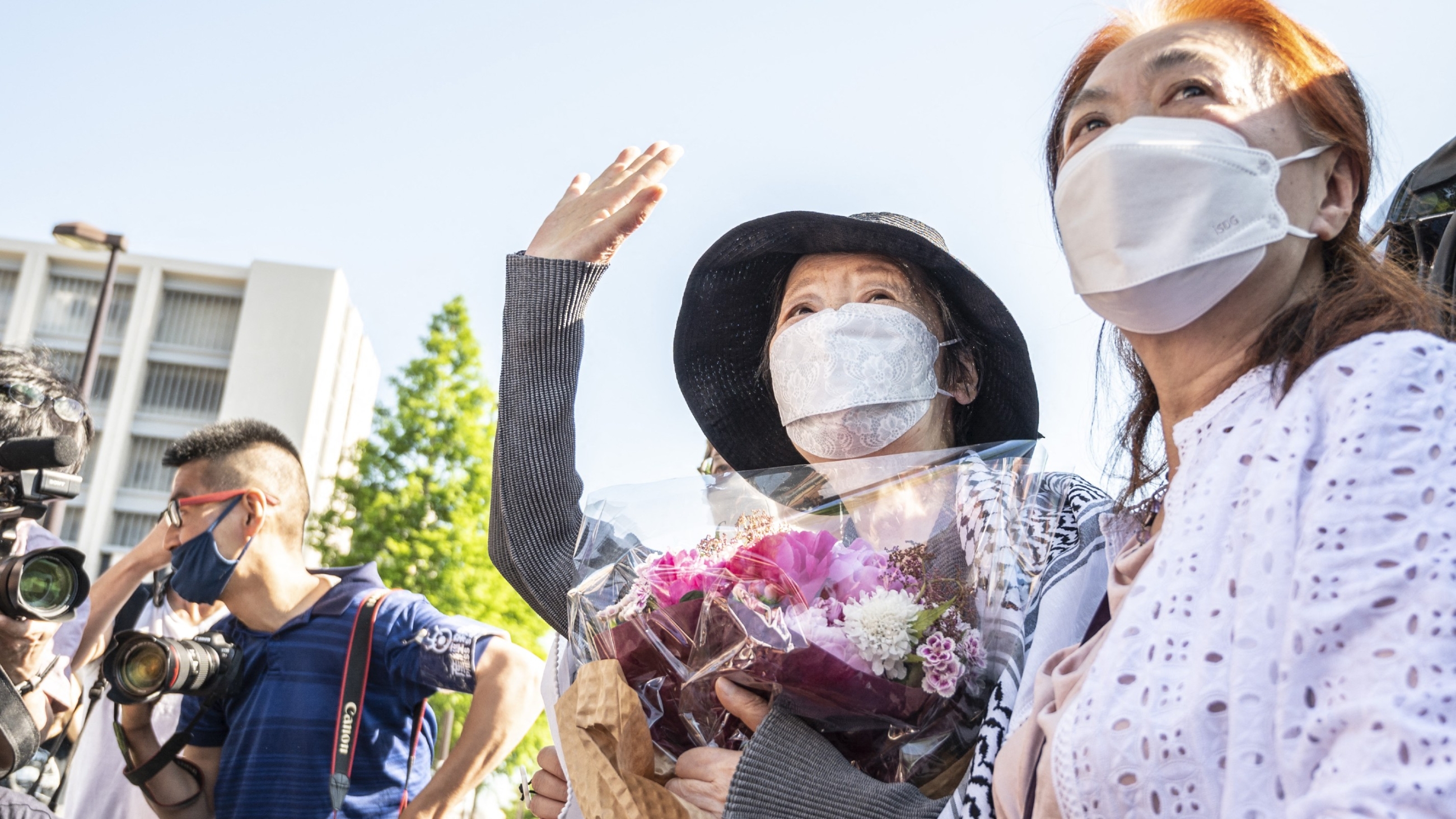
Fusako Shigenobu, the 76-year-old co-founder of the Japanese Red Army, walked free from prison on Saturday after completing a 20-year sentence for her alleged role in a 1974 embassy siege.
Shigenobu was one of the world's most feared women during the 1970s and 1980s when her radical leftist group carried out armed attacks worldwide in support of the Palestinian cause.
She left the prison in Tokyo in a black car with her daughter as several supporters held a banner saying "we love Fusako".
"I apologise for the inconvenience my arrest has caused to so many people," Shigenobu told reporters after the release.
"It's half a century ago... but we caused damage to innocent people who were strangers to us by prioritising our battle, such as by hostage-taking," she said.
New MEE newsletter: Jerusalem Dispatch
Sign up to get the latest insights and analysis on Israel-Palestine, alongside Turkey Unpacked and other MEE newsletters
Shigenobu had left Japan aged 25 and joined up with members of the left-wing armed revolutionary group the Popular Front for the Liberation of Palestine (PFLP).
In 1971, she established the Japanese Red Army from Lebanon, which carried out a series of hostage-takings and hijackings for the next 17 years.
She is believed to have masterminded the 1972 machine gun and grenade attack on Israel's Lod Airport, which left 26 people dead and wounded about 80. Kozo Okamoto, a member of the Red Army, was wounded and arrested in the attack.
In 1985, he was released in a prisoner exchange between Israeli and Palestinian forces and is still wanted with other members of the group by Japanese authorities. He is believed to be in Lebanon.
Shigenobu lived as a fugitive in the Middle East for around 30 years before resurfacing in Japan in 2000.
There, she was detained and after a six-year court hearing was sentenced to two decades behind bars for her part in a siege of the French embassy in the Netherlands.
The former soy-sauce company worker maintained her innocence in relation to the siege, in which three armed Red Army members stormed into the French embassy, taking the ambassador and 10 other staff hostage for 100 hours.
Two police officers were shot and seriously wounded. France ended the standoff by freeing a jailed Red Army guerilla, who flew off with the hostage-takers in a plane to Syria.
Shigenobu did not take part in the attack personally but the court said she coordinated the operation with the PFLP.
'I want to continue to reflect'
Born into poverty in post-war Tokyo, Shigenobu was the daughter of a World War II major who became a grocer after Japan's defeat.
Her odyssey to the Middle East began by accident when she passed a sit-in protest at a Tokyo university when she was 20.
Japan was in the midst of campus tumult in the 1960s and 1970s in protest against the Vietnam War and the Japanese government's plans to let the US military remain stationed in the country.
Shigenobu quickly became involved in the leftist movement and decided to leave Japan.
She announced the Red Army's disbanding from prison in April 2001, and in 2008 was diagnosed with colon and intestinal cancer, undergoing several operations.
Shigenobu said on Saturday she will first focus on her treatment and explained she will not be able to "contribute to the society" given her frail condition.
Her daughter May, born in 1973 to a father from the PFLP, hailed her mother's release in a livestream on social media.
"I want to continue to reflect [on my past] and live more and more with curiosity," Shigenobu told reporters after her release.
Middle East Eye delivers independent and unrivalled coverage and analysis of the Middle East, North Africa and beyond. To learn more about republishing this content and the associated fees, please fill out this form. More about MEE can be found here.


